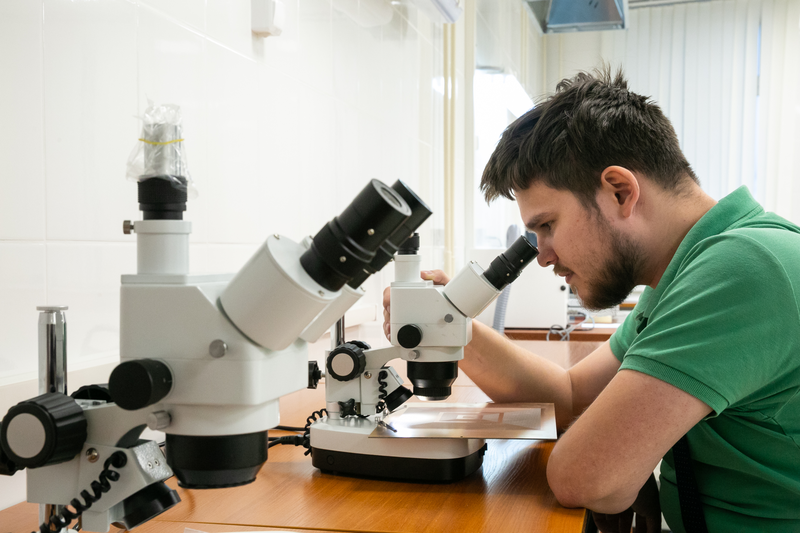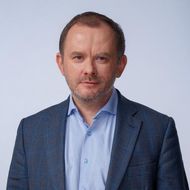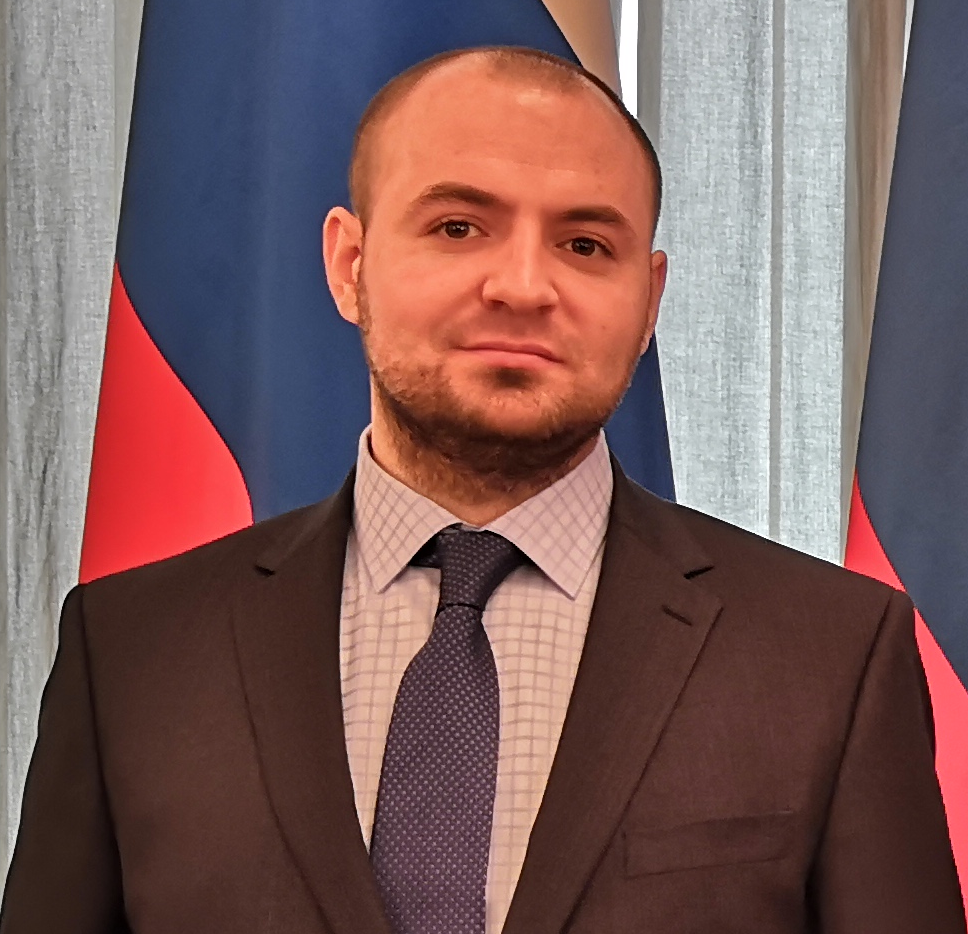Winners of New RSF Awards Include Projects from Four Campuses of HSE University

The Russian Science Foundation has completed its review of projects submitted for grants to support fundamental and exploratory research by teams, as well as 2022 grant winners applying for project extensions. In addition, interdisciplinary projects for fundamental and exploratory research awarded under the Presidential funding programme have been announced. Projects awarded under each of the three categories include submissions from researchers at all four campuses of HSE University.
Interdisciplinary Projects
The award 'Fundamental and Exploratory Research Conducted upon Instruction of the President of the Russian Federation (Interdisciplinary Projects)' is designed to support projects undertaken across various fields of knowledge by multiple partner organisations.
A total of 293 applications were submitted, and the RSF Expert Council selected and recommended 29 projects for funding, including the project titled 'Sustainable Maritime Transportation within the Framework of the International North-South Transport Corridor in the Context of Regional Security' by Sergey Karaganov, Academic Supervisor of the HSE Faculty of World Economy and International Affairs.

Anastasia Likhacheva
'The North-South Transport Corridor is set to become one of the main future arteries of Eurasia, and the opportunity to systematically explore, in collaboration with our colleagues from ASTU, the interdisciplinary issues of maritime transportation development, the Caspian Sea, and regional security is more relevant today than ever,' explains Anastasia Likhacheva, Dean of WEIA.
Astrakhan State Technical University will be HSE University's partner in the project.
Projects Conducted by Research Teams
The award 'Fundamental and Exploratory Research by Teams' received 4,491 applications, of which 534 projects, including 16 from HSE University, were selected for funding based on the expert review.
'Methods for Embedding Digital Watermarks in Multimedia Data Using Soft Computing and Noise-Resistant Coding' by Oleg Evsyutin, Associate Professor at the Department of Cyber-Physical Systems Information Security of MIEM HSE
'Research of Networks-on-Chip Using a Multi-FPGA Hardware and Software Complex' by Alexander Romanov, Professor at the School of Computer Engineering of MIEM HSE
'Demazure Roots and Root Subgroups' by Ivan Arzhantsev, Dean of the Faculty of Computer Science
'Investigation of Rare B-Meson Decays in the Belle and Belle II Experiments' by Pavel Pakhlov, Professor at the School of Electronic Engineering of MIEM HSE
'Bach1 and Nrf2 Modulators in Colon and Prostate Cancer Models' by Sergey Nikulin, Deputy Dean of the Faculty of Biology and Biotechnology
'Developing Methods for Measuring Biophysical Parameters of Land Cover: Toward the Integration of Measurement Systems' by Robert Sandlerskiy, Head of the International Laboratory of Landscape Ecology at the Faculty of Geography and Geoinformation Technology
'Existential Experience in the Digital Environment: Ontology of the Virtual and the Human Self' by Ivan Mikirtumov, Head of the Laboratory for Critical Cultural Theory at the School of Arts and Humanities, HSE Campus in St Petersburg
'Authenticity of Personality in the Context of Diverse Life Challenges' by Sofya Nartova-Bochaver, Head of the Laboratory for the Psychology of Salutogenic Environment at the School of Psychology of the HSE Faculty of Social Sciences
'Comparative Analysis of the Behaviour of AI Agents and Humans in Economic Decision Making' by Petr Parshakov, Head of the International Laboratory of Intangible-driven Economy, HSE Campus in Perm
'Sociocultural and Personal Determinants and Functions of Creativity' by Nadezhda Lebedeva, Academic Supervisor of the Centre for Sociocultural Research
'Organisational and Legal Aspects of Sustainable and Prudent Data Management in the Context of Digital Transformation' by Natalia Kovaleva, Head of the School of Digital Law and Bio-Law at the HSE Faculty of Law
'Personalised Learning and Grading Using Artificial Intelligence Algorithms: Model Development and Risk Assessment' by Elena Kardanova, Academic Supervisor of the Centre for Psychometrics and Measurements in Education of the HSE Institute of Education
'Soviet Medieval Studies of the 1920s–1980s: Academic Community, Concepts, and Institutions' by Artyom Klyuev, Visiting Lecturer at the School of History of the HSE Faculty of Humanities
'Verbal and Visual Elements in the Epigraphic Writing of Ancient Russia' by Alexey Gippius, Professor at the School of Philological Studies of the Faculty of Humanities
'Occupational Burnout Syndrome: Diagnosis Using Artificial Intelligence Methods and Assessment of Economic Effects' by Marina Zavertiaeva, Senior Research Fellow at the International Laboratory of Intangible-driven Economy, HSE Campus in Perm
'Algorithms for Data Transmission Control in 5G NTN Low-Orbit Satellite Communication Systems' by Artem Krasilov, Senior Research Fellow at the Laboratory of Telecommunication Systems of HSE MIEM
The winning projects are scheduled for implementation from 2025 to 2027, with the possibility of an extension by one or two years.

Ivan Arzhantsev
'Demazure roots of a convex cone or a fan of cones form a remarkable combinatorial structure that originated in the work of the French mathematician Michel Demazure in 1970. Demazure's work marked the beginning of a new branch of mathematics—toric geometry,' explains Ivan Arzhantsev. 'Each root defines a one-parameter subgroup, making it possible to describe the symmetry group of a complete toric manifold. Despite the rapid development of toric geometry, the root construction was forgotten for some time and was rediscovered in the 2010 dissertation of Chilean mathematician Alvaro Liendo. Over the past 15 years, with the active involvement of our research group, this construction has been significantly advanced and applied to numerous problems in modern algebra and algebraic geometry. While preparing the application, we analysed all existing work and developed a three-year plan to advance our understanding of the structure of symmetry groups of algebraic varieties. The Russian Science Foundation's support for the project indicates that it has received high scores from experts, which is extremely important to us. It also means that over the next three years, we must publish 12 articles in top-tier journals—an excellent incentive for further development. We have the maximum allowed team of ten members, all of whom are enthusiastic early-career mathematicians, so we are confident we will succeed. We have also committed to preparing an overview of Demazure roots, and we will fulfil this promise as well.'

Oleg Evsyutin
The project titled 'Methods for Embedding Digital Watermarks in Multimedia Data Using Soft Computing and Noise-Resistant Coding' focuses on developing new solutions for protecting multimedia data, such as digital images and videos, according to Evsyutin. 'The solutions to be developed in the course of the project aim to combat the illegal distribution, forgery, and misattribution of authorship of images and videos,' explains the head of the project. 'Given the widespread use of images and videos, these tasks in the field of cybersecurity are highly relevant, particularly in areas such as digital art, advertising, and the media. Digital watermarking technology will be used to protect multimedia data. A special digital label will be imperceptibly embedded into a digital object, such as an image, ensuring that the object is linked to its author or copyright holder, or storing information about the protected object. An important area of research, driven by modern trends in AI applications, will be the development of an approach for container-free embedding of digital watermarks using neural networks. This approach will involve generating a new image that already contains the watermark.'
The research team had previously worked on a grant from the Russian Science Foundation, which focused on developing new schemes for embedding digital watermarks in digital data. The new project will build upon the results obtained previously and develop further effective solutions, Evsyutin notes.
Project Extensions
In 2024, the three-year projects of research teams supported by the foundation in 2022 were completed. The terms and conditions of the award included the option to extend the project duration by up to two years. Based on the review, the deadlines for the implementation of three projects by HSE researchers have been extended:
'Fostering the Autonomy of Children and Adolescents in Education' by Katerina Polivanova, Academic Supervisor of the Centre for Modern Childhood Research at the HSE Institute of Education
'The Structure of Non-autonomous Vector Fields, Perturbations of Systems with Additional Structures, and Topological Invariants of Hyperbolic Dynamical Systems' by Lev Lerman, Chief Research Fellow at the International Laboratory of Dynamical Systems and Applications of the Faculty of Informatics, Mathematics, and Computer Science, HSE Campus in Nizhny Novgorod
'Images of the Enemy in Cold War Mass Culture: Content, Contemporary Reception, and Use in the Symbolic Politics of Russia and the USA' by Oleg Ryabov, HSE Campus in St Petersburg)
See also:
Physicists Propose New Mechanism to Enhance Superconductivity with 'Quantum Glue'
A team of researchers, including scientists from HSE MIEM, has demonstrated that defects in a material can enhance, rather than hinder, superconductivity. This occurs through interaction between defective and cleaner regions, which creates a 'quantum glue'—a uniform component that binds distinct superconducting regions into a single network. Calculations confirm that this mechanism could aid in developing superconductors that operate at higher temperatures. The study has been published in Communications Physics.
HSE Scientists Develop Simulation Environment for Connected and Automated Vehicles
A team of researchers and students led by Vitaly Stepanyants, Lecturer at the School of Computer Engineering of HSE MIEM, has developed a solution implemented at the Laboratory of Computer-Aided Design Systems of HSE MIEM, headed by Alexandr Romanov and Alexandr Amerikanov. For the first time worldwide, this system enables detailed simultaneous modelling of both environmental perception by automated vehicles and the propagation of connected transport signals. To date, there are no open-source programs comparable to the proposed environment.
Physicists at HSE University Reveal How Vortices Behave in Two-Dimensional Turbulence
Researchers from the Landau Institute for Theoretical Physics of the Russian Academy of Sciences and the HSE University's Faculty of Physics have discovered how external forces affect the behaviour of turbulent flows. The scientists showed that even a small external torque can stabilise the system and extend the lifetime of large vortices. These findings may improve the accuracy of models of atmospheric and oceanic circulation. The paper has been published in Physics of Fluids.
Immune System Error: How Antibodies in Multiple Sclerosis Mistake Their Targets
Researchers at HSE University and the Institute of Bioorganic Chemistry of the Russian Academy of Sciences (IBCh RAS) have studied how the immune system functions in multiple sclerosis (MS), a disease in which the body's own antibodies attack its nerve fibres. By comparing blood samples from MS patients and healthy individuals, scientists have discovered that the immune system in MS patients can mistake viral proteins for those of nerve cells. Several key proteins have also been identified that could serve as new biomarkers for the disease and aid in its diagnosis. The study has been published in Frontiers in Immunology. The research was conducted with support from the Russian Science Foundation.


